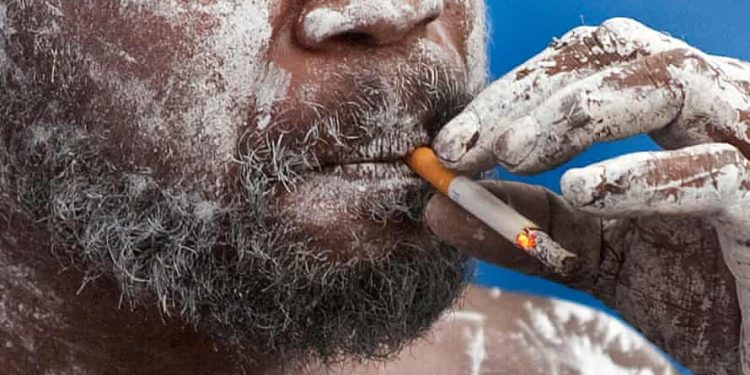Very few countries are monitoring tobacco smoking status among indigenous people, new research has found. This is despite that the World Health Organisation has warned that Indigenous peoples are being left behind by global tobacco control efforts. Smoking tobacco is associated with an estimated 6.2 million premature deaths globally per year. Because of that, reducing tobacco smoking is a key objective if the United Nations Sustainable Development Goal target to reduce premature deaths from noncommunicable diseases by one third by 2030 is to be reached.
To ensure no-one is left behind the United Nations have urged countries to collect information on population subgroups. Indigenous peoples number over 476 million making up about 6% of the world’s population. Their right to be recognized as distinct population groups is set out in the United Nations Declaration on the Rights of Indigenous Peoples, which most of the countries reviewed for the study have signed up to. But, of the 105 countries presented in the report, only 5 governments had smoking statistics for their indigenous people.
“We found a small number of studies on smoking among one or some indigenous peoples for another 10 countries. These studies appeared to be researcher-initiated and they occurred irregularly. There is clearly no plan to address the invisibility of smoking among most of the world’s indigenous groups” said the lead author Dr Marewa Glover.
“Smoking prevalence is disproportionately higher among some of the indigenous people compared to the non-Indigenous peoples in the same countries. If smoking prevalence is higher then so too might the smoking-related disease burden and deaths be higher. The overwhelming lack of data makes it impossible to know how widespread this inequity is. It also perpetuates the neglect of indigenous people’s health needs.” Dr Glover said.
Using a two-page fact sheet format, the report presents smoking prevalence statistics alongside information on some determinants of smoking. The location, population size, economic status and a short history of the colonisation of each country is provided.
“Tobacco smoking status is an important health indicator that global health and indigenous monitoring agencies need to be recording. This report sets a baseline for monitoring global progress on reducing smoking for indigenous peoples. Gaps in information are identified providing a useful guide for researchers looking to make a real difference for indigenous peoples.” Dr Glover added.
The full report:
https://coreiss.com/file/display/publication/22/smoking_prevalence_among_indigenous_peoples_of_the_world.pdf






